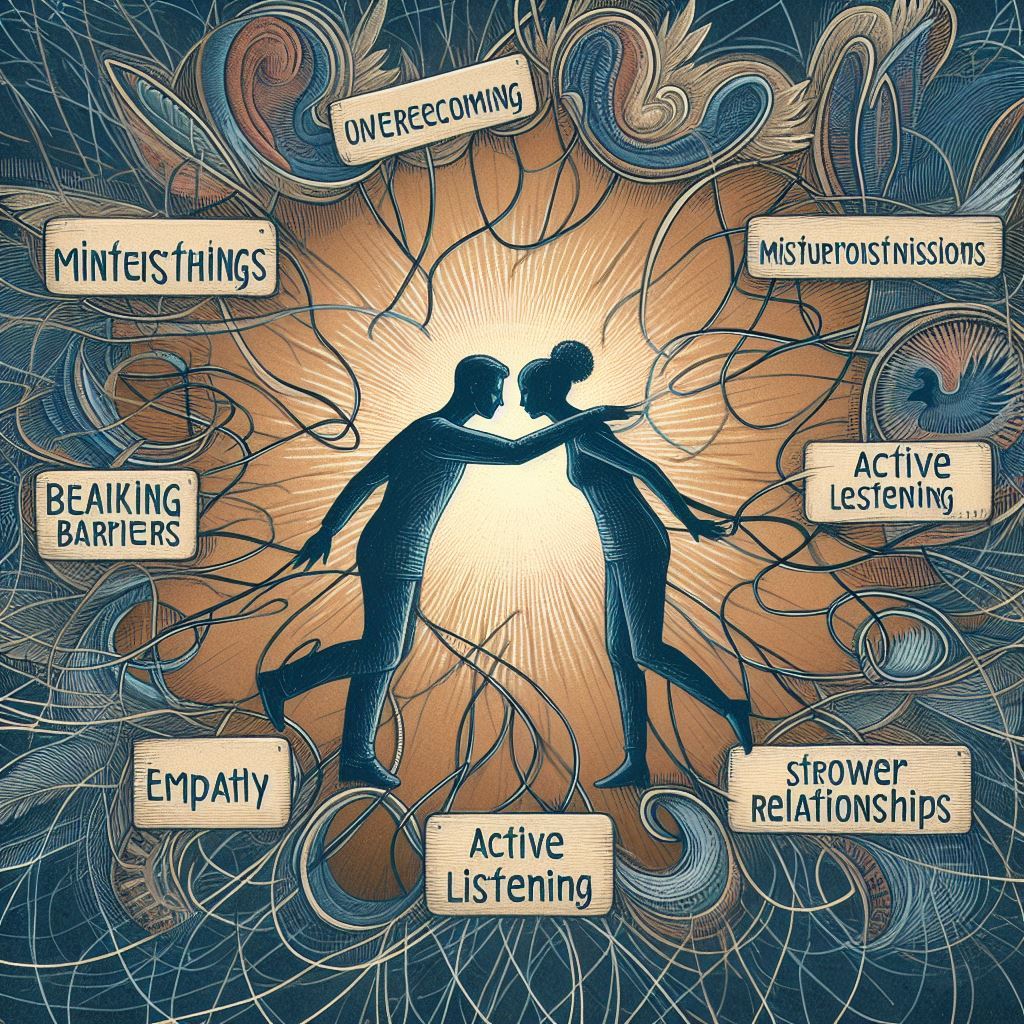In the intricate dance of relationships, communication serves as the lifeblood that sustains connection, understanding, and intimacy. Yet, fostering open and honest communication in romantic partnerships can be a delicate balancing act, fraught with challenges and complexities. In this guide, I'll delve into insightful strategies to help couples cultivate healthy communication patterns, deepening their bond and fortifying their relationship foundation.
Understanding the Importance of Communication:
Effective communication forms the cornerstone of healthy relationships, serving as a conduit for expressing emotions, needs, and desires. It fosters mutual understanding, empathy, and trust, laying the groundwork for intimacy and connection. By honing their communication skills, couples can navigate conflicts constructively, strengthen their emotional bond, and cultivate a relationship grounded in mutual respect and support.
Navigating Common Communication Pitfalls
Despite its importance, communication in relationships often falls prey to common pitfalls that can erode trust and intimacy. These may include:
- Assumptions and Misinterpretations: Misunderstandings arise when assumptions go unaddressed, leading to misinterpretations and discord. Clarify intentions, thoughts, and feelings to avoid misunderstandings and foster clarity and mutual understanding.
- Unhealthy Communication Patterns: Negative communication patterns such as criticism, defensiveness, contempt, and stonewalling can poison the relational atmosphere, fueling resentment and disconnection. Recognize and address these patterns proactively, replacing them with constructive communication habits that promote empathy, validation, and active listening.
- Avoidance of Difficult Conversations: Sweeping issues under the rug only prolongs unresolved tensions, breeding resentment and disconnection. Courageously approach difficult conversations with compassion and vulnerability, creating a safe space for open dialogue and mutual problem-solving.
Strategies for Enhancing Communication:
To nurture a thriving relationship, couples can implement the following communication strategies:
- Practice Active Listening: Cultivate the art of active listening by fully engaging with your partner's words, thoughts, and emotions. Offer your undivided attention, validate their experiences, and refrain from interrupting or rushing to respond. Reflect back their feelings and concerns to demonstrate empathy and understanding.
- Express Vulnerability: Vulnerability is the cornerstone of authentic connection. Share your thoughts, feelings, and vulnerabilities openly and honestly, creating a safe space for emotional intimacy and mutual support. Embrace vulnerability as a catalyst for deeper connection and understanding.
- Use "I" Statements: Frame your communication using "I" statements to express your thoughts, feelings, and needs without assigning blame or judgment. For example, instead of saying "You always neglect my feelings," try "I feel hurt when my feelings are overlooked."
- Practice Empathy and Validation: Empathy and validation are powerful antidotes to relational conflicts. Seek to understand your partner's perspective, validate their emotions, and express empathy for their experiences. Create a supportive environment where both partners feel heard, valued, and understood.
- Set Boundaries and Expectations: Establish clear boundaries and expectations around communication, respecting each other's need for space, autonomy, and individuality. Communicate openly about your needs, preferences, and boundaries, negotiating mutually agreeable terms that honor both partners' autonomy and comfort levels.
- Prioritize Quality Time Together: Quality time serves as a breeding ground for meaningful connection and intimacy. Set aside dedicated time for shared activities, conversations, and bonding experiences that nurture emotional closeness and deepen your relational bond.
- Seek Professional Support: If communication challenges persist despite concerted efforts, consider seeking the guidance of a qualified couples therapist or counselor. A trained professional can offer valuable insights, tools, and techniques to address communication barriers and foster relational growth and healing.
In conclusion, effective communication lies at the heart of healthy and fulfilling relationships, serving as a bridge that connects partners on a deeper level. By cultivating active listening, vulnerability, empathy, and constructive communication habits, couples can navigate conflicts with grace, deepen their emotional bond, and cultivate a relationship characterized by trust, intimacy, and mutual respect. Remember, the journey towards healthy communication is ongoing and requires dedication, patience, and a commitment to relational growth and connection.


